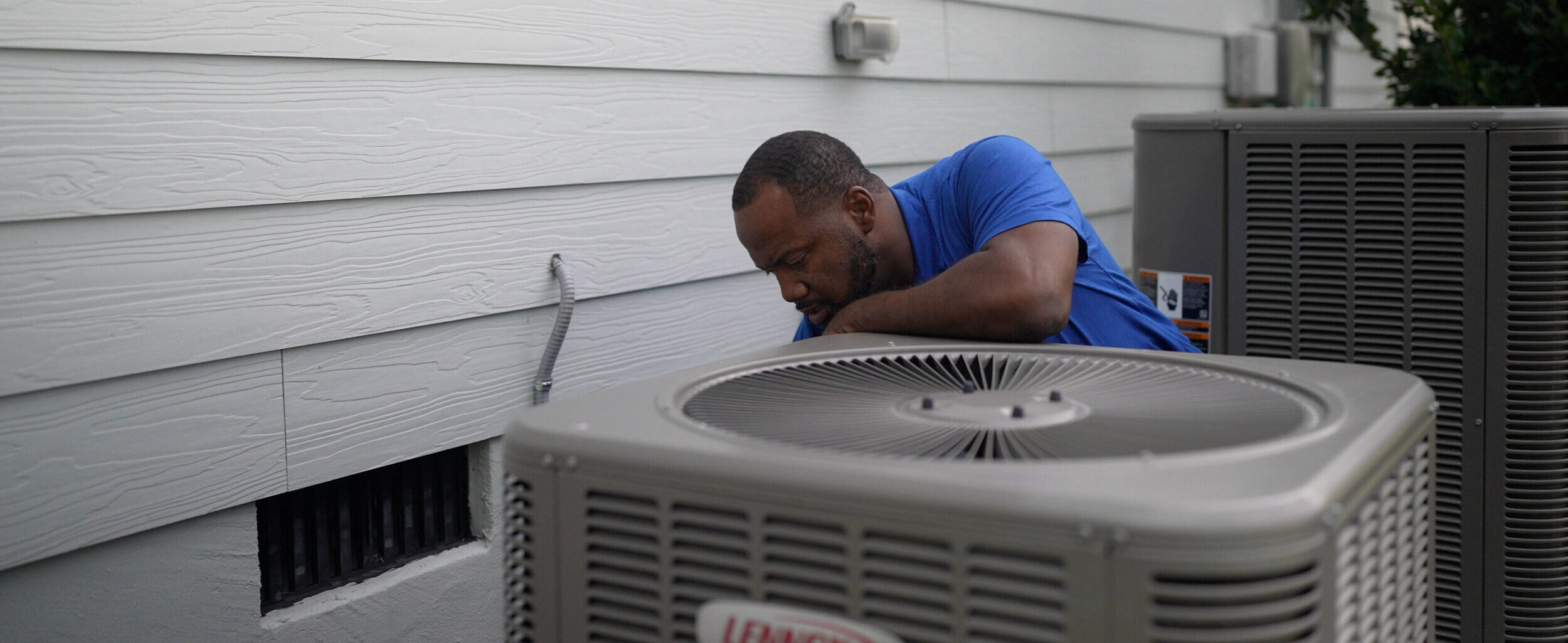How to Tell if an AC Fuse Is Blown
When the summer heat is at its worst and you need your air conditioner the most, that’s when you’re most likely to experience a system breakdown. This is due to the fact that AC systems rely on fuses to operate, which are more susceptible to blowing out when temperatures are particularly high.
Knowing how to tell if an air conditioner has a blown fuse is part of proper HVAC equipment ownership. By understanding why your AC system is malfunctioning, you can better prepare for your cooling service needs and avoid costly repairs in the future.
What Kind of Fuse Does an Air Conditioner Use?
Air conditioners use fuses as a way to protect the condenser from being exposed to excessive amperage. Fuses are designed to handle a limited amount of amperage based on the maximum amount that the unit is rated for: If more amperage passes through, the fuse will blow to protect the condenser from overheating.
Typically, AC systems use “TR”-type fuses to ensure safe system operation. However, if you’re in a pinch and need to replace a fuse quickly, you can use a fuse that is rated for a lower amperage than what the system is rated. If you use a fuse that’s capable of handling higher amperage, this could cause the condenser to break down and could cause irreparable damage to your unit.
Why Does My AC System Keep Blowing Fuses?
Aside from excessive heat, air conditioners can blow fuses for a number of different reasons, including the following:
- Circuit malfunction: There may be a larger problem with your circuit, fuse box, or power supply. If your breakers trip and fuses blow frequently, there’s too much amperage in the power line for your systems to handle.
- Faulty capacitor: Your capacitor is the component within your condenser that helps regulate electrical current. When this malfunctions, it can cause your fuse to blow and your unit to break down.
- Dirty filters: When your unit works harder than it should through a dirty filter, it can overheat and cause the fuse to blow. Always ensure your air filters are kept clean throughout the summer to avoid overheating the system.
- Loose electrical: You may have loose electrical components within your air conditioner. When temperatures are high and electrical components become loose, the result can be a blown fuse or system malfunction.
Additional causes for blown fuses in your air conditioner include faulty condenser fans, malfunctioning compressors, improper refrigerant levels, and old age.
How Do I Check an Air Conditioner for a Blown Fuse?
If you think your air conditioner has blown a fuse, the first sign you’ll notice is that the outside AC unit is inoperable. The best way to check for a blown fuse is by using a voltmeter. Be warned — you are working with live electricity and should use extreme caution when troubleshooting your system. That said, let’s dive into the steps you should follow to inspect for a blown fuse using the voltmeter:
- Locate your disconnect: There will usually be a gray box mounted to your home near the outdoor condenser unit. This is your disconnect.
- Open the disconnect: Open the disconnect’s cover either by lifting or swinging it to the open position.
- Expose the wiring: After opening the disconnect, you should see another cover inside that protects the wiring. Pop this out to expose the wiring beneath.
- Locate the wires: Once exposed, locate the incoming and outgoing wires by identifying the labels “line” (incoming) and “load” (outgoing). Both wires carry 110 volts.
- Set your meter: Before proceeding, set your voltmeter to the voltage (V) setting and ensure the display reads “0” volts.
- Place the leads: Take your voltmeter’s wires (leads) and attach them to the lugs (screws) of your disconnect, placing the red lead on the lug of the black “line” wire and the black lead on the lug of the white “line” wire.
- Read the voltage: Your voltage reading should display somewhere in the range between 220 and 240. If you see this, it means you have power coming into the disconnect to your fuses. Should no reading appear, there may be an issue with the breaker panel, which your local electrician will need to address.
- Test the load: If you saw a voltage reading during the previous step, run the same test on the “load” side of the fuses. You should again see a reading between 220 and 240. If you see a voltage reading on the “line” side but not the “load” side, it means you have a blown fuse.
What if I Don’t Have a Voltmeter?
If you don’t have a voltmeter to test your air conditioner’s fuses, you can always choose to replace the fuses by going to a local hardware store and picking up the size you need. As aforementioned, this is typically the “TR”-type of fuse. Replacing your fuses is a fairly simple process; however, if you don’t feel comfortable executing this, it’s highly recommended that you contact an air conditioning repair specialist for the assistance you need. To replace your AC unit’s fuses, complete the following steps:
- Some fuses are fully exposed and located in the same area as the wiring, while other disconnects contain their fuses within the handle itself. If your disconnects are housed within the “T” handle, you’ll need to pull this out first to locate the fuses before proceeding to the next step.
- In either instance, pull out the handle to stop the flow of power to the fuses while replacing them. It’s important to note that this doesn’t stop the flow of power to the disconnect or fuses on the line side, so it’s best to shut down your breaker to your AC unit to ensure optimal safety.
- Finally, remove the fuses by popping them out with your hands if they’re located in the handle or by grabbing them with a pair of pliers with insulated handles. Never use bare metal handles when working with electricity.
When Should I Contact Air Experts for AC Repair Services?
If all this sounds way too complicated, don’t worry: Air Expert’s team of air conditioner repair technicians is here to help. Our team has more than 35 years of industry experience delivering the long-lasting AC repair solutions that Raleigh residents need to restore their systems. Available seven days a week, 365 days a year, our air conditioning repair professionals will get to the bottom of your blown fuse problem in no time.
Call us at 919-480-2727 to schedule emergency air conditioning repair in Raleigh, NC, today!







